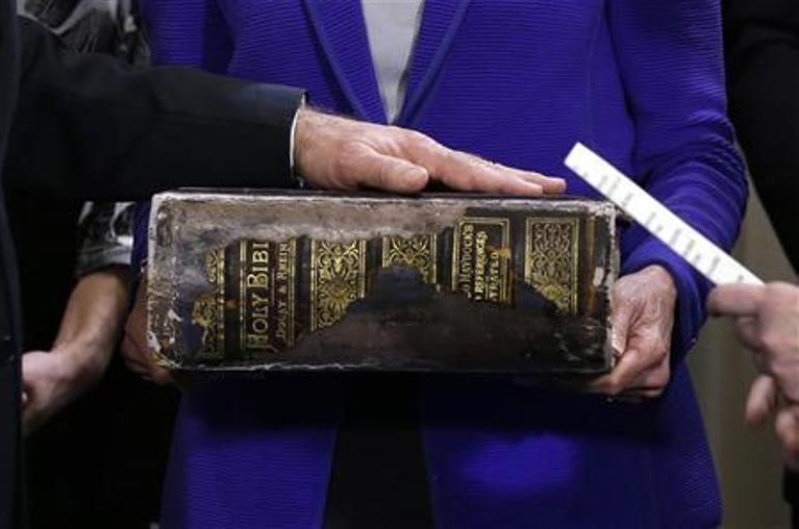
George Mason University professor Lincoln Mullen's new computer-based software, which he called America's Public Bible, became a tool that tracks the use of Bible verses, and he just found Bible verses were once everywhere in the print of 11 million pages of old newspapers.
Mullen is a historian of American religions whose work assembles the study of multiple religious traditions. He also works on digital maps and visualizations, and teaches a graduate class on programming for historians and other classes on digital history.
His dataset starts in 1837, in the midst of an evangelical revival that made Christianity a much more dominant facet of American culture than it was in the pre- and post-Revolutionary years. It ends in 1922, because after that year, printed material is protected by copyright laws.
Nineteenth-century periodicals printed Sunday school lessons, ran Bible clubs for readers and circulated sermons. Editorials alluded to well-known scriptural references, and verses were even used as punch lines of jokes, reports The Washington Post.
Mullen said he didn't read all those newspapers himself; instead, he coded Bible verses into a computer, and sent the computer looking for matches to those phrases in the newspapers archived online by the Library of Congress and National Endowment for the Humanities' "Chronicling America" project.
The history, art history and American religion scholar also trained to computer to recognize which verses were true matches. The tool still gets some false positives, Mullen said, but it's about 90 percent accurate.
His efforts turned up some predictable favorites: "Thou shalt not kill," "Give us this day our daily bread" and John 3:16.
One verse he focused on: "Greater love hath no man than this, that a man lay down his life for his friends" (John 15:13). That verse became enormously popular during World War I, often appearing in soldiers' eulogies to justify their sacrifice, Mullen said.
"Historians have been interested in how religion, Christianity in particular, supports or opposes war or violence. That verse in particular is helping people justify the war to themselves," he said. He said he found other verses used to proclaim America's "manifest destiny" to settle the West in the mid-19th century.
Overall, Bible verses were about as common in newsprint in 1922 as they were at the beginning. Mullen said he was expecting a decline over time. But he finds the overall pattern - "People quoted the Bible a lot; people didn't quote the Bible a lot" - less interesting than the fluctuating fortunes of individual verses.
Adding more newspapers to the project could be expensive and legally complex, though Mullen said he would be interested in seeing the changing use of scripture as Americans' Biblical literacy changed drastically in the late 20th century.







